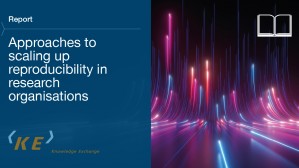
Date: Thursday 14th December, 2017
Time: 1pm GMTOther timezones: 7am CT; 8am EST; 10am BRT; 2pm CET/WAT; 3pm EET/SAST; 9pm AWST
This webinar is open to the public
On Thursday 14th December OASPA and Knowledge Exchange will co-host the webinar 'New Developments in Open Access Monographs', to present the latest findings on the development of OA monographs, based on three recent studies:
‘Landscape study on Open Access and Monographs'
Eelco Ferwerda will talk about this in depth study initiated by Knowledge Exchange, which focused on the conditions and potentials for Open Access books in eight European countries.
The study, supported by FWF, CRIStin and Couperin and conducted by Eelco Ferwerda, Frances Pinter and Niels Stern, focused on eight European countries: Austria, Denmark, Finland, France, Germany, the Netherlands, Norway and the UK. It is the biggest landscape study on the conditions and potentials for Open Access books yet, based on almost 75 in-depth conversations among three stakeholder groups: Publishers, funders and libraries.
Who reads this stuff, anyway?
Lucy Montgomery will talk about the challenges and opportunities of usage data for OA scholarly monograph publishers, based on the findings of two recent studies on the uses of OA books, carried out by Knowledge Unlatched Research. This presentation will present the core findings of two recent studies on the uses of OA books, carried out by Knowledge Unlatched Research: An in-depth study on the challenges and opportunities associated with the growing availability of rich usage data for small OA monograph publishers; and a new report exploring how OA books are being found and used via the JSTOR platform.
The OA effect: How does open access affect the usage of scholarly books?
Christina Emery will present a white paper from Springer Nature, comparing usage data for OA and non-OA scholarly books. Springer Nature recently published a white paper on ‘The OA effect: How does open access affect the usage of scholarly books?' This report presents the first major comparative analysis of usage data for OA and non-OA scholarly books, and provides an informed view of how a book benefits from OA publication. It also highlights the challenges involved in measuring the impact of OA on scholarly books and suggests that there is much to do across the whole scholarly communications network in supporting authors and their funders. In the webinar, these key findings will be presented.
This webinar is open to all. Sign up and find out more









